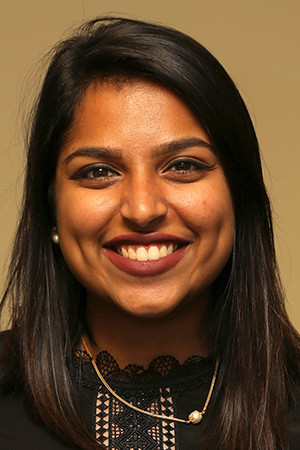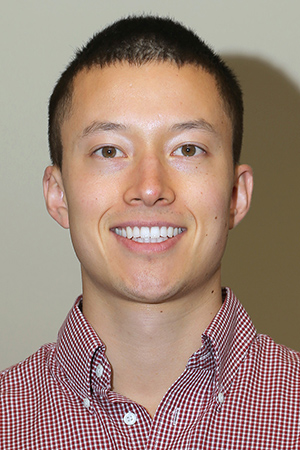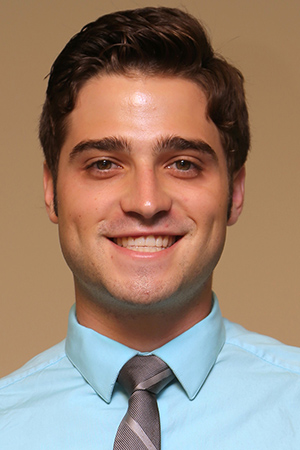<< Back to Rocket Medicine homepage
Rocket Medicine takes off with major curriculum change
The University of Toledo College of Medicine and Life Sciences implemented a redesigned curriculum beginning with the class of 2021. This curriculum emphasizes clinically relevant material and application with collaboration between clinicians and foundational science faculty.
Officially called “Rocket Medicine,” this major curriculum change puts an emphasis on a competency-based curriculum with early clinical experience and seamless integration of foundational and clinical sciences. This integrated curriculum includes system-based learning, a focus on clinically relevant material, collaboration between clinicians and foundational science faculty, more emphasis on clinical medicine preparation and skills, and early clinical experiences.
The motivation behind this important initiative is multifaceted with the end goal to develop professional, compassionate and competent physicians with a lifelong commitment to improving health.
“The leadership of the College of Medicine and Life Sciences recognized the transformational change that is taking shape across the landscape of medical education throughout the country and the need to evolve the educational and clinical experience of our learners,” said Dr. Imran Ali, vice dean and chair of the Department of Medical Education, which oversees curriculum.
“The reform process is not based on the ideas of one person, but a summation of experiences and suggestions that started from the dedicated teaching faculty,” he said.
“This important collaboration has been instrumental in building a curriculum that is integrated across the basic and clinical sciences.”
The basis of the integration is to foster and promote long-term retention to build the competence that is needed to groom future health care providers.
“Since implementation, we have seen a combination of mini and large-scale successes as well as opportunities for continued growth and development,” said Dr. Jeremy J. Laukka, associate dean for Foundational Sciences. “The students have endured through the new curriculum in a positive way, collaborating with faculty to continue the process of building an impactful educational experience.”
Integrated Clinical Experience program
There is a variety of new teaching methods being utilized and a greater emphasis on clinical medicine preparation and skills beginning in the first year.
An important part of the new curriculum is the Integrated Clinical Experience, which provides the opportunity for first-year medical students to begin getting experience in the clinical setting. The goals of the program include demonstrating the relevance of material being learned in the classroom as well as providing an opportunity to begin developing and practicing skills.
“This helps promote an early understanding of the patient experience and includes early exposure to different specialties and career paths,” said Dr. James Kleshinski, associate dean for undergraduate medical education. “It’s also opportunity for students to get to know physicians in our community as well as College of Medicine alumni.”
Students are assigned to physician faculty preceptors in either a primary care specialty, non-surgical sub specialty, or a surgical specialty.
At 10- to 12-week intervals, students rotate assignments so they have exposure to all three areas over the course of the year.
Student Experiences
Medical students recall their experiences with the new curriculum as incoming students:
Trisha Khambadkone
 I wholeheartedly believe that the integration of clinical experiences and a system-based
learning is not only preparing my classmates and me for board exams, but it is also
giving us the opportunity to use our classroom knowledge in a real-world setting before
we even start in the wards.
I wholeheartedly believe that the integration of clinical experiences and a system-based
learning is not only preparing my classmates and me for board exams, but it is also
giving us the opportunity to use our classroom knowledge in a real-world setting before
we even start in the wards.
During my time with these physicians, I'm able to apply concepts I've learned from lectures and textbooks in a real-life setting that I wouldn't have been able to do in the old curriculum before third year.
Opportunities like these remind me why I chose to pursue a career as a physician – and this makes me grateful to be in a school that helps me rediscover my passion for service and working alongside people.
Jake Lennert
 I've been impressed overall with the faculty's ability to implement this change in
way less time than other med schools who have done curriculum revamps. It's a great
feeling to know that your administrative faculty has your performance and competence
as its focus.
I've been impressed overall with the faculty's ability to implement this change in
way less time than other med schools who have done curriculum revamps. It's a great
feeling to know that your administrative faculty has your performance and competence
as its focus.
I've had tremendous clinical experiences. The exposures have been priceless in helping me link our lectures to the broader purpose and utility that awaits us in the future.
UTCOMLS is one of the few medical schools where we have such a direct and open connection to our faculty and administration. Our input and feedback are formative in shaping our curriculum and the curriculum of future classes.
Alex Petrak
 The field of medicine is undergoing great change, and I was looking to attend a medical
school that will better prepare me for the realities of navigating medicine in today's
age.
The field of medicine is undergoing great change, and I was looking to attend a medical
school that will better prepare me for the realities of navigating medicine in today's
age.
UTCOMLS has made it its mission to both prepare students for the board exams and beyond. Test prep is important, but our material expands beyond board knowledge with a greater emphasis on important cases that our faculty have experienced in the clinic.
I was surprised upon matriculating here to discover how intently UTCOMLS values the well-being of students. I now sit on the board of our Student Health & Wellness Group, which has teamed up with faculty to spearhead wellness initiatives and class discussions surrounding physician wellness.
Right now, we are in the middle of a crisis with burnout and even suicide. UTCOMLS recognizes this and opened up doors for conversation early in our time here with resources and strategies to assist us. I am very thankful for this and feel that the school has indirectly provided me with the best perspective possible for succeeding in medical school. It truly is a privilege to do what we do.


